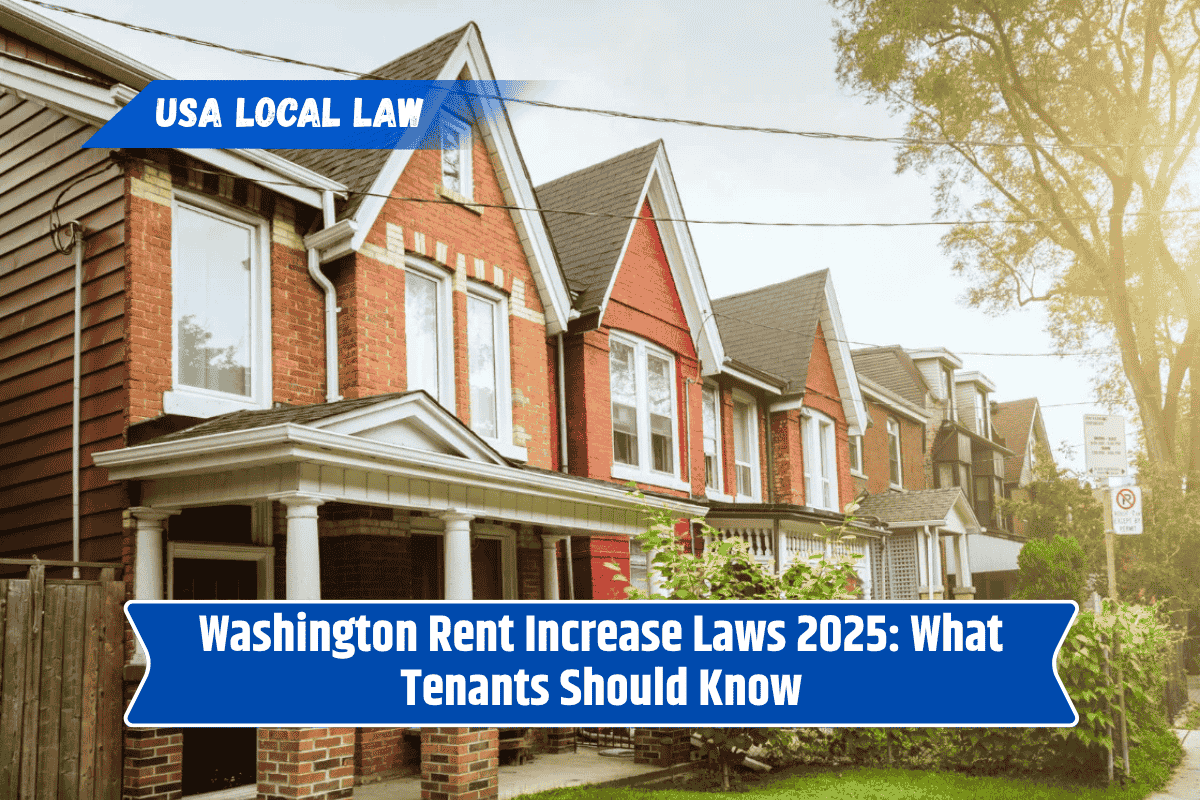In Washington State, rent prices have been rising fast in many cities, causing stress for tenants. That’s why it’s important to understand what the law says about rent increases in 2025.
Whether you rent an apartment, a house, or a room, knowing your rights can help you avoid unfair treatment and plan better for your future. This guide explains the current rent increase laws in Washington in simple words.
Is There a Limit on Rent Increases in Washington?
As of 2025, Washington State does not have a statewide rent control law, which means there is no strict limit on how much a landlord can raise your rent. However, there are rules on how and when they can do it.
Some cities like Seattle and Tacoma have their own extra protections. These are called local ordinances, and they may offer more help to renters.
Notice Period: How Much Time Must Landlords Give?
One of the most important rules in Washington is the notice period. Landlords must give written notice before raising the rent.
For rent increases of any amount, they must give you at least 60 days’ written notice before the new rent takes effect. This gives tenants time to plan or find a new place if needed.
For month-to-month renters, this 60-day rule is especially important. If your rent goes up suddenly without warning, the landlord could be breaking the law.
Can Landlords Raise Rent During a Lease?
No. If you are in a fixed-term lease (like a 12-month lease), your landlord cannot raise the rent during that period unless the lease says otherwise. They must wait until the lease ends and then give you the proper notice before any increase.
Local Rules in Seattle and Other Cities
In Seattle, landlords must follow extra rules, such as:
Providing a written notice 180 days (6 months) in advance for rent increases
Giving tenants information about their rights and rental assistance programs
Limiting fees or charges beyond just rent
In Tacoma, voters passed a law in 2023 that says landlords must give 120 days’ notice for large rent increases (over 5%). Other cities may pass their own rules, so it’s always good to check with your city or local housing office.
What Counts as a Legal Rent Increase?
A rent increase must be:
In writing
Given with the correct notice time
Not used to punish or force a tenant to move (called retaliation)
Equal and fair for all tenants in similar situations
If a landlord raises the rent unfairly or without proper notice, you can file a complaint with your local housing department or seek legal help.
How to Protect Yourself as a Tenant
To stay protected:
Always get written communication about rent increases
Keep copies of your lease, rent receipts, and notices
Learn about local renter protections in your city
Reach out to tenant rights groups or legal aid if you feel your rights are being violated
Evictions and Rent Increases
In some cases, landlords may try to raise rent a lot to force tenants out. This can be a form of constructive eviction, which may be illegal if it’s meant to harass you. Washington law protects tenants from this kind of behavior, especially in cities with added renter protections.
Rent increase laws in Washington State can be tricky because there’s no single rule for all. While there’s no limit on how much rent can go up statewide, landlords must follow proper rules for giving notice. Cities like Seattle and Tacoma have added protections in place for renters.
In 2025, tenants should be aware of their local rules, know the 60-day notice requirement, and seek help if they feel a rent increase is unfair or unlawful. Staying informed is the best way to protect your home and your budget in today’s rising rental market.
